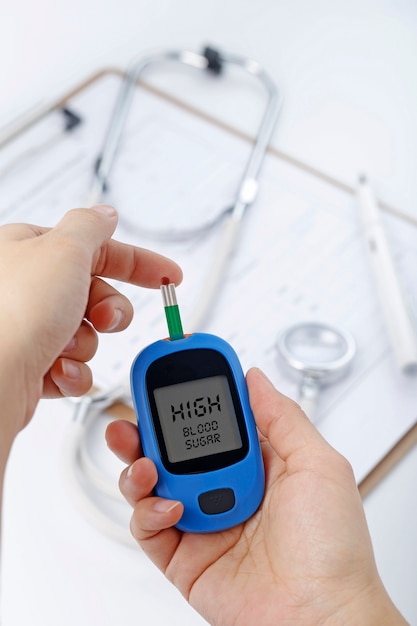
A 2011 study published in *The Lancet* revealed that around 347 million people worldwide suffer from diabetes, a condition caused by high blood sugar levels. Left unchecked, this disease can lead to serious health problems like heart disease, kidney failure, nerve damage, or even blindness in extreme cases.
### Take Charge of Your Blood Sugar Levels
High blood sugar is definitely something to worry about since it makes you more prone to severe health complications, and in some cases, it could be life-threatening. If you’ve been noticing any of the following symptoms, it’s time to pay attention:
– Feeling thirsty often or needing to urinate frequently.
– Persistent dryness in your mouth or skin.
– Blurry vision or unexplained weight loss.
– Frequent fatigue that comes out of nowhere.
– Repeated infections or slow-healing cuts and wounds.
These could be signs of high blood sugar or even diabetes, so don’t ignore them—consult your doctor as soon as possible.
On the bright side, making simple lifestyle changes can do wonders for keeping your blood sugar in check, and in many cases, it’s more effective than relying solely on medication. Here are some practical steps you can take:
—
### Focus on a Healthy Diet
What you eat plays a major role in controlling blood sugar levels. By making some small tweaks to your eating habits, you can prevent spikes and dips in sugar levels while improving your overall health. Here’s how:
– **Spread out your meals:** Eating at regular intervals without skipping meals helps keep your glucose levels steady.
– **Choose the right carbs:** Go for healthier carbohydrates like fruits, vegetables, whole grains, legumes, and low-fat dairy.
– **Add fiber-rich foods:** Foods high in fiber can help regulate your blood sugar.
– **Avoid saturated fats:** Skip high-fat dairy and animal proteins. Instead, choose healthy fats from nuts and seeds.
– **Steer clear of trans fats:** Processed snacks and baked goods are loaded with these unhealthy fats, which are best avoided.
– **Limit simple sugars:** Minimize your intake of sugary drinks and foods as much as possible.
Certain foods are particularly effective at managing blood sugar. For example, magnesium-rich foods may lower the risk of developing type 2 diabetes, as supported by a 2011 study from Soochow University in China. Grapefruit is another great option—research from the Hebrew University of Jerusalem and Massachusetts General Hospital shows that it contains antioxidants that can help control diabetes. So, incorporating magnesium-rich foods or a daily grapefruit into your diet might make a big difference.
—
### Get Moving
Regular exercise is key to managing blood sugar. When you work out, your muscles use glucose for energy, which naturally lowers sugar levels. Here are some tips to keep in mind:
– Aim for about 150 minutes of moderate to vigorous exercise each week. That’s roughly 20 minutes a day—totally doable, right?
– Timing matters. Blood sugar typically spikes after meals, so a 15-minute brisk walk about 30 minutes after eating can help bring those levels down. This is especially effective for older adults, as shown in a 2013 study published in the journal *Diabetes Care*.
—
### Break Bad Habits
Some habits—like smoking—can worsen blood sugar control. Research from California State Polytechnic University highlights how nicotine significantly raises blood sugar levels. Quitting smoking may be challenging, but it’s one of the best things you can do for your health and blood sugar control.
To quit successfully, you’ll need a combination of determination, support, and possibly some additional tools:
– **Nicotine Replacement Therapy (NRT):** This helps you quit by using safer nicotine sources (like patches or gum) that you gradually phase out over time.
– **E-cigarettes:** These mimic the act of smoking and can come in non-nicotine varieties, offering an option for those trying to quit without the harmful tobacco. One study reported that about 30% of e-cigarette users managed to quit smoking entirely.
– **Counseling or medication:** Professional guidance can be invaluable if other methods don’t work.
—
### Manage Stress
We all face stressful situations daily, and unfortunately, stress can raise blood sugar levels. To counter this, learn some simple relaxation techniques like deep breathing, visualization, or progressive muscle relaxation. A study conducted at Duke University found that these stress-reduction practices are highly effective in lowering blood sugar during tense situations.
So, next time stress comes knocking, take a moment to unwind and stay in control of your health!